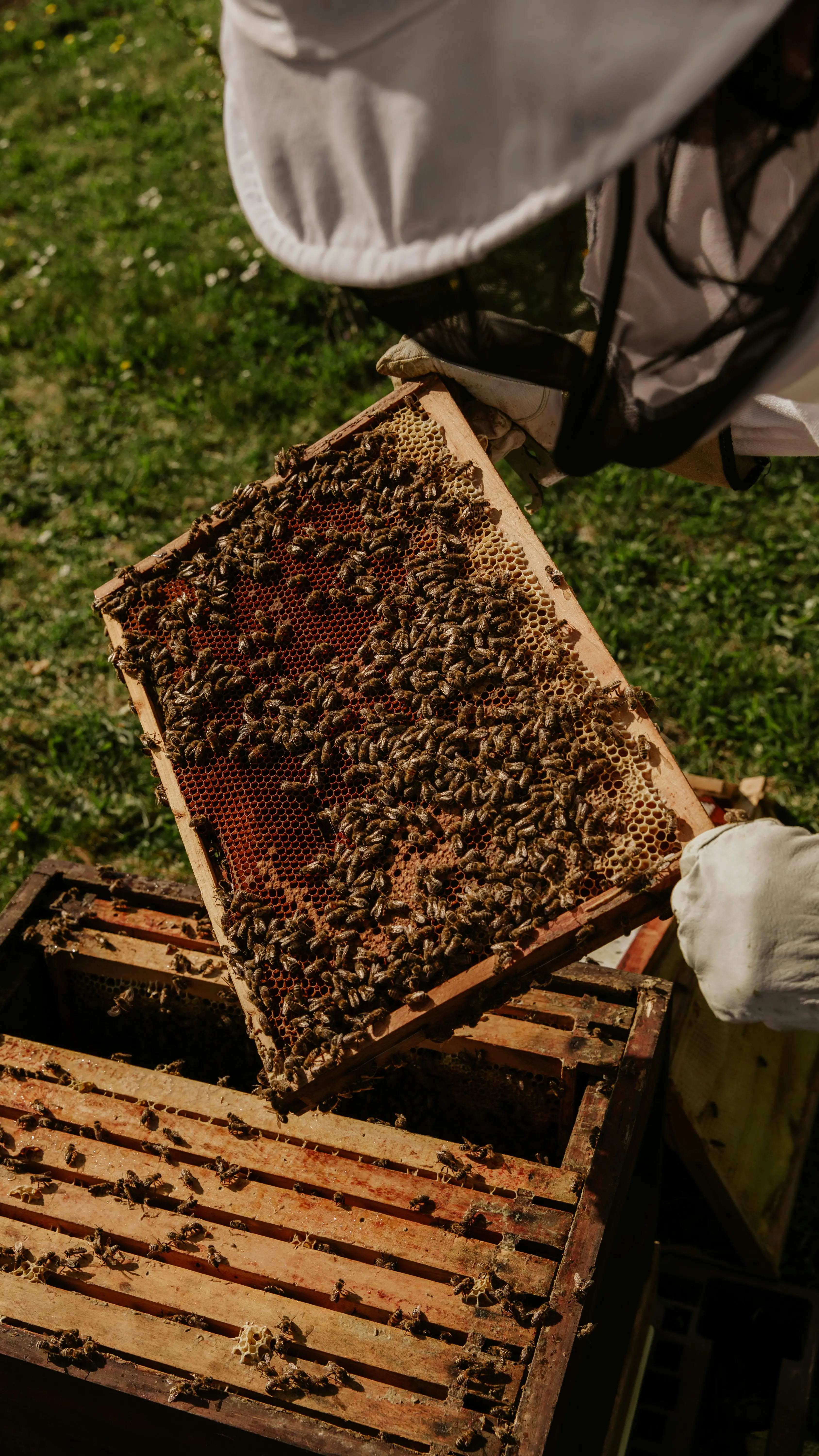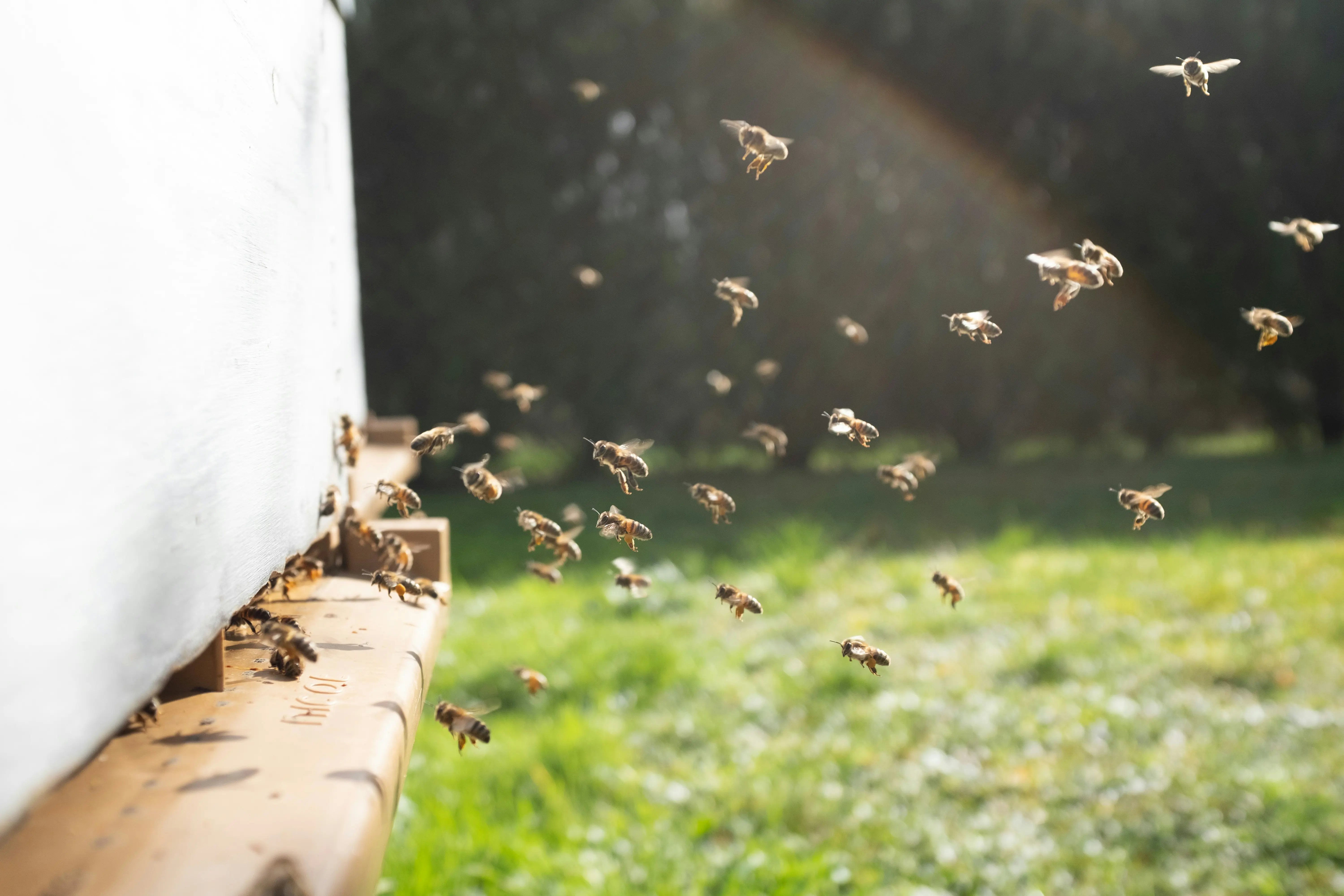BEEHIVES IMPROVE BIODIVERSITY AT REPTON SCHOOL
Repton School is now home to two beehives that will help to improve the biodiversity of the surrounding area, produce local honey, and enable Repton pupils to further explore the environment and biology beyond the curriculum syllabus.
The colonies will be managed by the Repton Beekeeping Team, a group of 17 pupils led by Repton’s Head of Biology, Nick Gardner. The team are undertaking training on how to carry out hive inspections and care for the colonies with help from local beekeepers including the Burton and Derby Beekeeping Association. They will also be working alongside Repton’s DT department to build sustainable hives and explore the possibility of producing 3D printed hives.
Located in the woodland area between the Science Priory and indoor tennis courts, there is a yellow hive, home to a robust colony likely to produce honey in the next couple of months, and a smaller, newly established blue hive. The aim is for the Repton Beekeeping team to inspect and maintain the hives and harvest the honey to jar and sell.
The proceeds from the honey will help to fund the equipment required to maintain the hives and track various metrics to study the bees, as well as cameras for a live-feed link. There are many benefits to consuming locally produced honey, particularly raw unprocessed honey that has antibacterial and antifungal properties, as well as being beneficial for allergy sufferers and those with hay fever.
The bees have been kindly donated by a biology teacher at Bromsgrove, and Repton’s Head of Biology, Mr Gardner assures us they are “very gentle and placid, they have been living on Bromsgrove School grounds for the past couple of years with no issues. A huge thank you must also go to Repton’s grounds staff who have worked hard to plant bulbs and flowers in the vicinity of the hives and create a fenced off level area for the hives.”
Weekly inspections will be carried out on the hives to mitigate the risk of swarms and any pupils with bee-sting allergies have received additional guidance and information on how to protect themselves.












